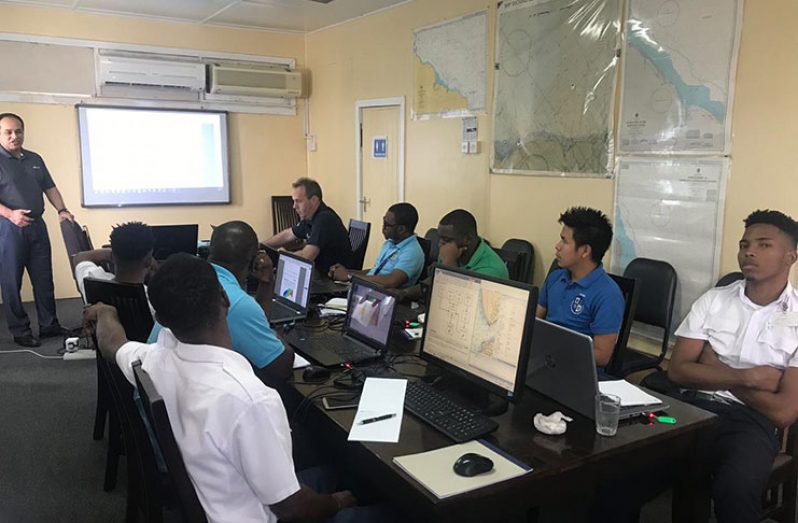THE UK Hydrographic Office (UKHO) has begun a three-week capacity-building programme in Guyana to support safe maritime trade and the development of a sustainable blue economy.
Those in attendance during the training included representatives from the Maritime Administration Department (MARAD) and the Guyana Lands and Surveys Commission.
According to the programme, almost all activity in our oceans, from shipping to monitoring delicate marine environments, depend on accurate seabed mapping data that illustrate the shape and movement of natural underwater features.
So, for coastal communities like Guyana, the collection of this data is vital to supporting sustainable economic growth and protecting their communities from the effects of climate change.
As part of the UK Government’s Commonwealth Marine Economies (CME) Programme, the UKHO will be presenting equipment and training to help Guyana collect this data through seabed mapping surveys of its coastal waters.
This data will then be used to develop new nautical charts, which will be key to supporting sustainable maritime trade in the area.
Further, information collected through these surveys will be used to support disaster planning and resilience, coastal infrastructure development and protection of natural resources.
Claudette Rogers, Director General of MARAD, said multi-beam sonar equipment and training from the Commonwealth Marine Economies Programme “will help us to develop valuable skills which will be of benefit to Guyana for many years to come.”
She said that the information gathered from subsequent surveys will provide valuable support in the development of Guyana’s blue economy, allowing the country to manage the development of maritime trade and the sustainable use of natural resources.
“As well as being used to allow vessels safe access to our ports and harbours, the data will be utilised in other disciplines such as fisheries and coastal zone management, environmental planning, and maritime security, and will also assist in the development of policies that protect our marine environment,” she said.
Greg Quinn, British High Commissioner to Guyana, said: “Oceans and rivers are the lifeblood of society. It is important to use them safely and efficiently to protect both people and the environment. Through the provision of training and the ability to collect data, we are partnering with Guyana to meet its international maritime obligations and advance its socio-economic development agenda.”




.jpg)










